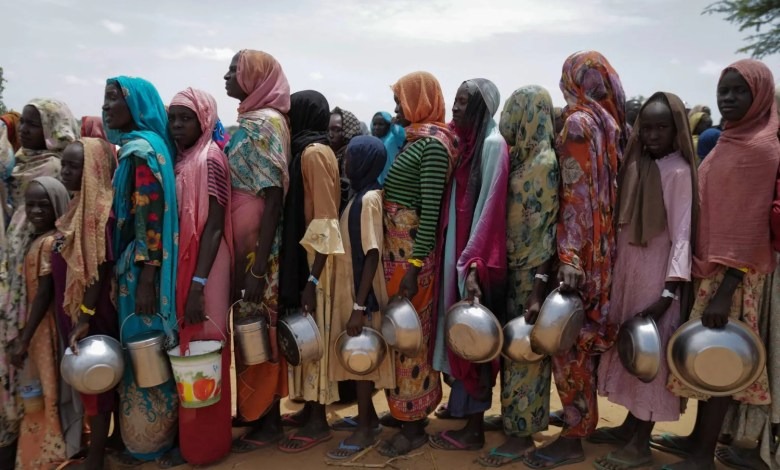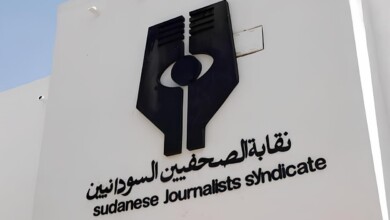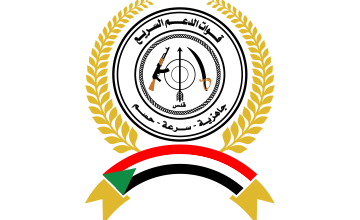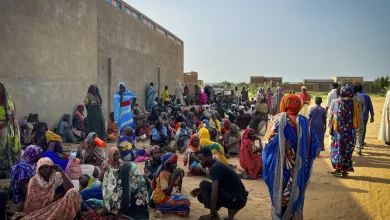Sudan drops out of hunger monitor system ahead of famine report

The Sudanese government has suspended its participation in the global hunger monitoring system ahead of a report expected to reveal that famine has spread across the country, a step likely to undermine efforts to address one of the world’s largest hunger crises.
In a letter dated December 23rd, the Sudanese government’s Agriculture Minister stated that the government is halting its participation in the Integrated Food Security Phase Classification (IPC) system. The letter accused the (IPC) of “Issuing unreliable reports that undermine Sudan’s sovereignty and dignity.”
On Tuesday, the (IPC) is expected to publish a report finding that famine has spread to (five) areas in Sudan and could expand to (10) areas by May, according to a briefing document seen by Reuters.
“This marks an unprecedented deepening and widening of the food and nutrition crisis, driven by the devastating conflict and poor humanitarian access,” the document stated.
A spokesperson for the Rome-based (IPC) declined to comment.
The head of a non-governmental organization operating in Sudan, spoke on the condition of anonymity, sharing that Sudan’s withdrawal from the (IPC) system could -very well- undermine humanitarian efforts to help millions of Sudanese suffering from extreme hunger.
“Withdrawal from the (IPC) system won’t change the reality of hunger on the ground,” the NGO head added. “However, it does deprive the international community of its compass to navigate Sudan’s hunger crisis. Without independent analysis, we’re flying blind into this storm of food insecurity.”
A diplomat with Sudan’s mission to the United Nations in New York didn’t immediately respond to a request for comment on this particular development.
Food Security Phase Classification
The (IPC) is an independent body funded by Western nations and overseen by (19) large humanitarian organizations and intergovernmental institutions.
A linchpin in the world’s vast system for monitoring and alleviating hunger, it is designed to sound the alarm in regards to developing food crises so organizations would be able to readily respond and prevent famine and mass starvation.
The World Food Programme (WFP) stated in a report published on Friday that it will need ($16.9) billion to fund its operations in (2025), in order to provide assistance to (123) million people worldwide.
IPC analysts typically partner with national governments to analyze data related to food insecurity and to report on conditions within a country’s borders. The government has headed the IPC’s analysis group in Sudan.
However, the system has increasingly struggled to function since war erupted in April (2023). The fighting, in which the Army-backed government was involved, has disrupted data collection in areas under its control.
Monday’s letter was addressed to the (IPC) and its Famine Review Committee, which vets and verifies a famine finding, as well as to diplomats.
The letter states that the forthcoming (IPC )report lacks updated malnutrition data and assessments of crop productivity during the recent summer rainy season.
“The growing season was successful,” the letter adds. Noting, “Serious concerns” in regards to the IPC’s ability to collect data from territories controlled by the Rapid Support Forces.
Alex de Waal, Executive Director of the World Peace Foundation at Tufts University’s Fletcher School, called Sudan’s move to stop cooperating with the (IPC) as “Both pathetic and tragic.”
“It’s part of a long history of the government of Sudan denying famine going back more than (40) years,” added de Waal, a leading specialist on famine. “Whenever there’s a famine in Sudan, they consider it an affront to their Sovereignty, and they’re more concerned about their pride and their control than they are over the lives of their citizens.”





